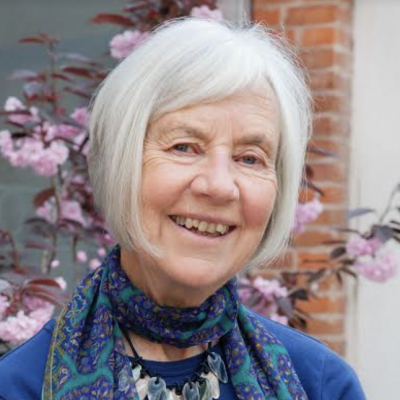Jane Willis
I began my career teaching English and French in Ghana, West Africa (where I met my husband, Dave!) and together, we went on to teach in Cyprus, Iran and Singapore, where we met Prabhu for the first time. It was Prabbu who got us interested in task-based learning because he and his experimental team never 'taught' any grammar at all but his learners did become pretty fluent English speakers. While Dave and I were experimenting with TBL in the 1970s we were asked by the COBUILD team to write a set of text books based on a lexical syllabus - an exciting project. Back in the UK we worked at Universities in Birmingham, ran workshops on task-based language teaching and wrote several books for teachers. I am now semi- retired and living in the Lake District near my family, teaching Tai Chi and walking in the mountains. More details (and TBL resources) on my website: www.willis-elt.co.uk

Sessions
Task-based teaching – but what about the grammar?
How did the world’s bi-lingual and plurilingual people learn the languages they speak? Were they taught or did they acquire them naturally? And how can task-based teaching help? I will show (by demonstrating a task in action) how a pre-task preparation phase and a three part task-based cycle (Task, Planning, Report) can enhance essential conditions for natural language learning both inside and outside the classroom. Interestingly, explicit grammar instruction is not an essential condition, but it has been shown that some focus on language form can help enhance learning. But what do we mean by grammar? We used to see Grammar and Vocabulary as fairly separate entities. But insights gained from Corpus Linguistics reveal that the relationship is more of a cline, from word to phrase (fixed and partially fixed), collocation, pattern, class and structure. Communication is largely lexically-driven; after all, it is words and phrases that carry the meanings that learners will need to understand and express in order to become confident speakers. Knowledge of grammar can help them fine-tune if there is time and a need to do so. How to incorporate these insights into task-based teaching? I will show how the meaning-focussed text-based task cycle we began earlier can be followed by a range of different form-focussed activities that highlight and explore multiple aspects of grammar occurring in the texts and the task recordings that form the learner’s ‘pedagogic corpus’. Activities involve consciousness-raising, recall, extension, correction and consolidation. I will demonstrate various starting points: a single word or phrase, or a semantic field (e.g. topic-related phrases) that can help learners identify useful forms, build on them and extend their use into their personal repertoire of language appropriate for global communication. Bio: Writer of several prize-winning books, Jane Willis worked extensively overseas as an English teacher and trainer before moving to Aston University’s Masters in TESOL programs. Now retired, she lives in the English Lake District and enjoys fell walking. She also teaches tai chi and is still quite active on the TBLT scene. See www.willis-elt.co.uk This plenary is sponsored by JALT Task-Based Learning SIG.
TBL SIG Forum
The TBL SIG forum follows directly after the TBL SIG Sponsored Plenary Talk ‘TBLT: but what about the grammar?’ by Jane Willis. The plan for this forum is to continue the discussion of issues raised in Jane’s talk, and to expand on some of the activities that Jane introduces. Participants will have the opportunity not only to ask any questions they might have, but to share examples from their own teaching contexts regarding the place of grammar in the TBLT classroom.